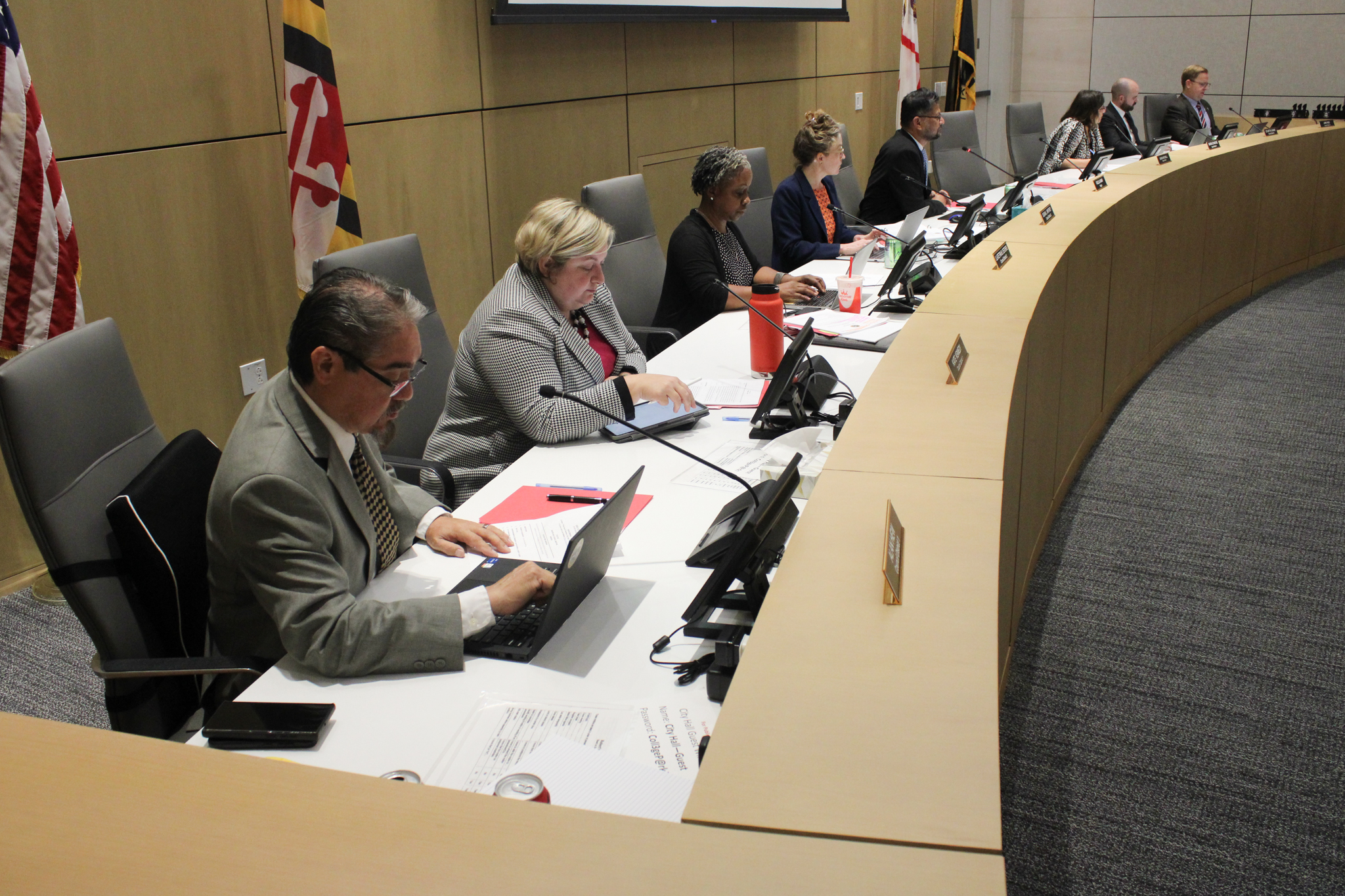The College Park City Council continued discussions about raising taxes on vacant and blighted properties in the city at its meeting on Tuesday.
The council has had multiple work sessions in the past six months where members discussed taxes on vacant and blighted properties to improve the upkeep and occupancy of these properties. Now, the council is considering forming a subcommittee to continue investigating the option.
The potential tax bump isn’t meant to increase the city’s revenue, the city’s finance director Gary Fields said at the meeting.
“This is not a revenue generating action,” Fields said. “It is to try to get an amount that will compel owners to take corrective action.”
Council members examined vacant and blighted tax policies in other jurisdictions in the region, including Baltimore City, the City of Frederick, Charlottesville, Virginia, Prince George’s County, Washington, D.C., and Upper Marlboro.
Washington, D.C., has particularly high vacant and blighted property tax rates, at $5 of tax per $100 for vacant properties and $10 of tax per $100 for blighted properties.
[College Park City Council increases home ownership grants for first responders]
District 3 council member Stuart Adams said the council should look to create parameters to define vacant and blighted properties before thinking about setting the tax rates for these properties.
“We’re going to get to the conversation of what that rate should be,” Adams said. “I don’t think we should worry about that right now.”
The process of defining this framework should take place over the next year, Adams said.
College Park resident Aubrey Batten said to have the desired impact, the vacant and blighted property tax rates would need to be “aggressively high.” An increase in the vacancy tax would not be harmful because it would target cooperative and larger landlords rather than individuals, Batten said.
“A vacancy tax is not something that will harm individuals or small-time landlords whose financial incentives all align to rent their property out as quickly as possible,” Batten said.
Fields believes higher tax rates could also stop property owners from purposely keeping their properties vacant for a long time to sell their properties to business owners for the highest-possible price.
Jacob Hernandez, a candidate vying for a District 1 city council seat in November’s city election, said he believes the tax could also help incentivize the growth of new businesses in North College Park, which his district includes.
[College Park businesses could receive up to $200K through business retention fund]
“It would encourage commercial owners to make more of an amenable environment,” Hernandez said.
Several council members endorsed the idea of creating a subcommittee that will steer future conversations about the potential tax increase.
“We have many capable residents that have an interest in this,” Adams said.
Council members are divided over the timeline for moving forward on the policy.
District 1 council member Kate Kennedy said if the council creates a tax subcommittee, it should put proper thought into the process.
“We can’t just willy nilly have sub committees,” Kennedy said.



